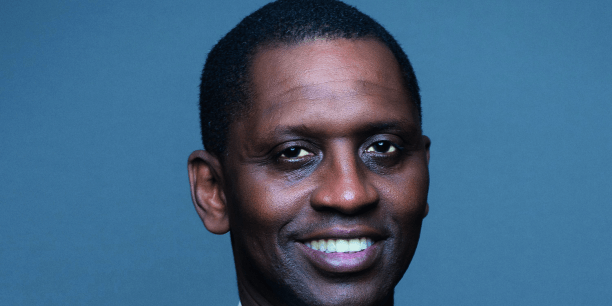With broken sticks and without sticking tongue, Kabirou Mbodje looks back on the genesis of Wari, its meteoric expansion and its sometimes strained relations with banks and telecom operators.
Can you tell us about the genesis of Wari?
KABIROU MBODJE – Wari was created in 2008 on the basis of strong convictions and a precise observation of the dynamics on the continent. The African economic culture marked by a very strong entrepreneurial spirit and the often absence of physical networks organized to facilitate economic exchanges constituted a promising basis for developing a powerful and efficient digital ecosystem, useful to all and with strong leverage for populations. Wari has been on this positioning since its founding: creating an organized environment and a dematerialized network to facilitate daily, standardized, fast and secure transactions. Payments of all kinds, phone credit recharge, pension payment, scholarship or salary… the solutions developed by the Wari platform allow it! Wari is actually a kind of transactional backbone.
What is your current strategy?
By being an aggregator of versatile solutions, we are in fact a leading player in the uberization of African economies and an accelerator of financial inclusion. We want to continue on this path with another very strong conviction: digital technology makes it possible to make technological leaps, to fill the absence or deficiency of physical networks and to connect Africa to the rest of the world. Digital is local service at a lower cost.
Fintech operators are transforming the continent by providing access to a multitude of services previously inaccessible. Wari pushes logic and wants to be a synthesis with an “agnostic” and open platform on which all the actors involved in a transaction can be grafted: traders, customers, companies, individuals, banks, telecom operators …
What relations do you have with banks and telecom operators?
We are fundamentally partners but also competitors! But I am convinced that the Wari model generates shared wealth. We have to think in an ecosystem. Let everyone do their job, I was going to say, and I am sure that it is the users who will benefit from it: fintechs provide transaction solutions, telecom operators provide connectivity, banks develop financial services. It is for this reason that Wari is in the process of acquiring the SIAB bank located in Togo and a subsidiary of the Libyan Foreign Bank holding company. We got the approval of the Libyan Central Bank. This acquisition is now subject to the approval of the Togolese authorities and the West African Economic and Monetary Union (UEMOA) Banking Commission.
With distribution agreements or approvals obtained from central banks, as has just been the case in Sierra Leone, our ambition is in fact to create a Wari community so that everyone can flourish. I often take the example of the baker who, to do a good job, needs a good miller and a good farmer, all willing to create value together, each in their own segment.
Does the takeover of Tigo aim to have more leeway compared to telecom operators?
This acquisition is logical and natural, even if it is the first time that a fintech operator has bought a telecom. Until now, it was quite the opposite!
Tigo brings connectivity and therefore an obvious synergistic effect with the Wari platform. The “Wari plus Tigo” pairing consists of digital solutions, a territorial network and geographical proximity. I am convinced that this model will make the difference. A bank can only operate with its customers, a telecom operator is limited by its license. Wari is a central link. I add something that is dear to me. That this transaction takes place in Senegal reflects the dynamism of the sector in my country. Economic patriotism and African ambition are also important values for me. The support of the President of the Republic, His Excellency Macky Sall, who declared that this “takeover by a Senegalese was a strong signal for the private sector”, constitutes for me a tremendous encouragement.
What is your comment on the BCEAO call to order for Orange Money regarding transfers of money abroad?
This decision reflects the need to regulate these new digital flows. The position of central banks is normal. They are in their role when they want to control financial movements because otherwise we can be sure of the artificial monetary creation source of imbalances. It is now necessary to bring all the players around the table to develop a model that both regulates financial flows and allows digital solutions to flourish, because Africa’s development depends on it.
Is the establishment of a continental regulator in the field of fintech a necessity?
That must be the goal. Africa needs a continental organization to harmonize and standardize transactions and ensure better exchange of economic information.
In light of the technological frog leap underway on the continent, can we expect without being overly optimistic that Africa will be a source of global innovation in fintech in the coming years?
I’m convinced. Africa will bring the economic and digital model of tomorrow. Its economic dynamism, its ability to develop new services and the absence of structural inertia are all assets. In fact, Africa is skipping the intermediate steps: we have seen it with telephony, we are experiencing it with digital. Africa has everything to succeed: a buoyant market, quality human resources, abundant capital, increasingly well-trained engineers … Africa can be proud of what it is. She can therefore build her future as a leader.


Leave a Reply